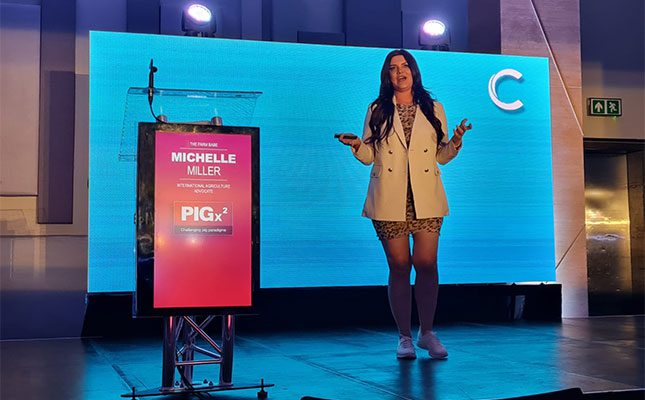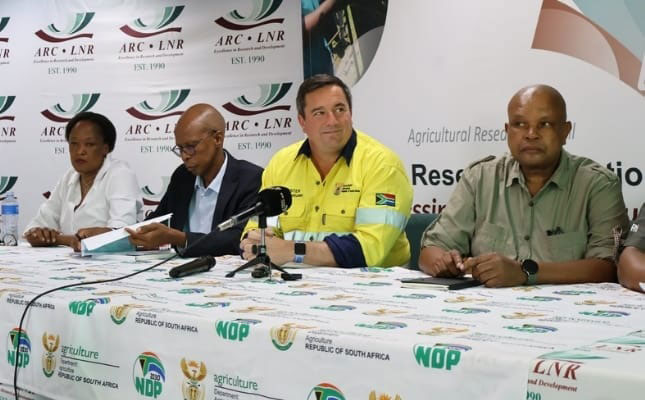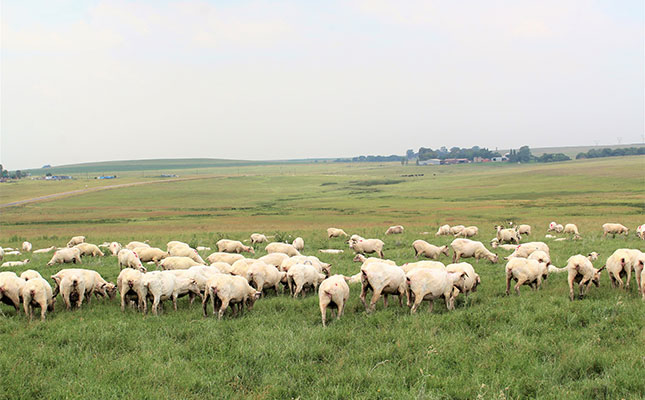
This was the message US-based agri-influencer Michelle Miller – known globally as the Farm Babe – brought to South Africa last week during her visit to local farms and agribusinesses. With a growing global audience hungry for honest insights into how food is made, Miller emphasised the impact farmers can have by simply sharing their stories.
“Imagine if every farmer had just 1 000 followers,” she said. “That’s 1 000 people hearing the truth about farming instead of getting their information from celebrities or activists who’ve never set foot on a farm.”
Miller urged farmers to start Facebook pages, TikTok accounts, or podcasts to connect with consumers, build trust, and help shape the narrative around food production. “Your voice matters. If we don’t tell our story, someone else will – and they might get it very wrong,” she added.
In adopting the right attitude towards consumer concerns, Miller said: “Most people aren’t stupid; they just don’t know what they don’t know.”
She advised farmers to tell their stories with patience and the aim to educate, not condescend.
“Fear sells, and people fear what they don’t understand. Who can blame them when they don’t know a farmer or the production process? We need to have conversations about what we are doing on farms and in research. If we don’t tell people about it and they fear it, then it doesn’t matter how much on-farm good we are doing – consumers won’t accept our food,” she explained.
Miller told farmers to remain authentic and have empathy: “Put yourself in [the consumers’] shoes and understand that they don’t know much about food production. You might get haters, but you’ll also build a community of people who want to learn more about their food.
There’s a lot in farming that you can’t control, but you can control the perception of farming.”
Speaking to Farmer’s Weekly, Robyn Joubert, marketing manager at Chemuniqué, said it was important for the industry to keep the gap between the farmer and consumer as narrow as possible.
“As industrialisation, innovation, and urbanisation have advanced, consumers have become increasingly removed from the origins of their food. This distance makes it difficult for them to grasp the realities and complexities of food production and the challenges farmers face daily, such as climate change, policy shifts, and supply chain disruptions. Bridging this gap is crucial,” she explained.
Joubert noted that closing the communication gap was a shared responsibility across the entire value chain: “All stakeholders – from farmers and suppliers to processors and
communicators – have unique knowledge and perspectives that the average consumer lacks. The collective effort to educate and engage consumers ensures more transparency, builds trust, and fosters stronger connections between the farm and the table.
“It is incumbent upon each individual and organisation in the agrifood system to use their voice.”
She echoed Miller’s sentiment that communication should be rooted in authenticity, transparency, and empathy.
“It’s important to communicate the realities of food production clearly and honestly, while respecting consumers’ curiosity and diverse perspectives. Empathy means understanding what consumers care about – safe, healthy food rather than the technical details of farming – and meeting them where they are,” Joubert said.
Get trusted farming news from Farmers Weekly in Google Top Stories.
➕ Add Farmers Weekly to Google ✔ Takes 10 seconds · ✔ Remove anytime







